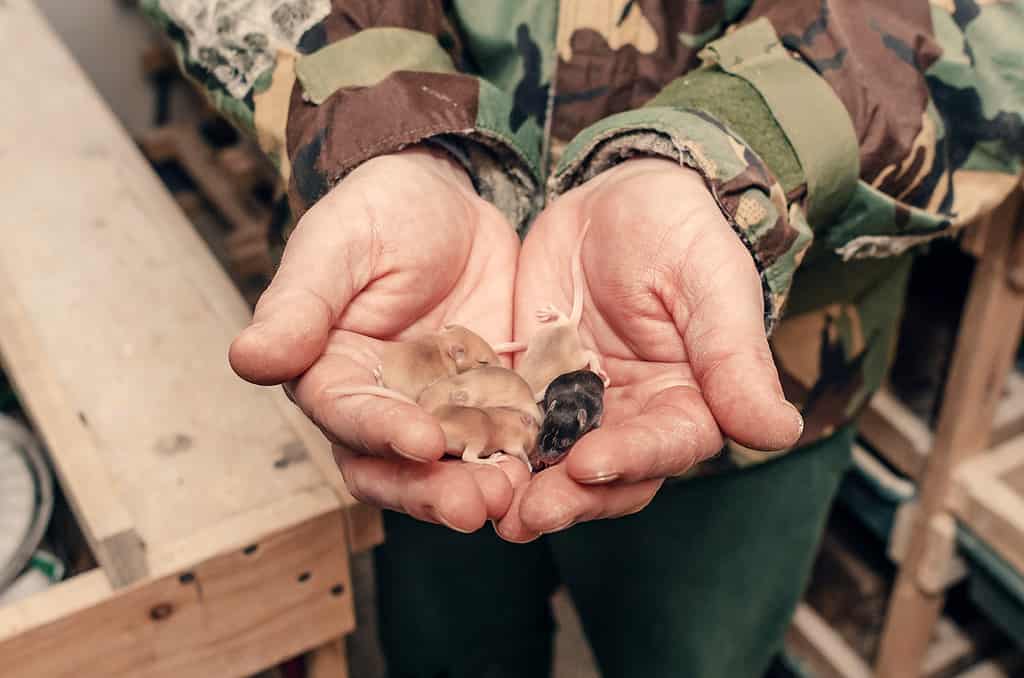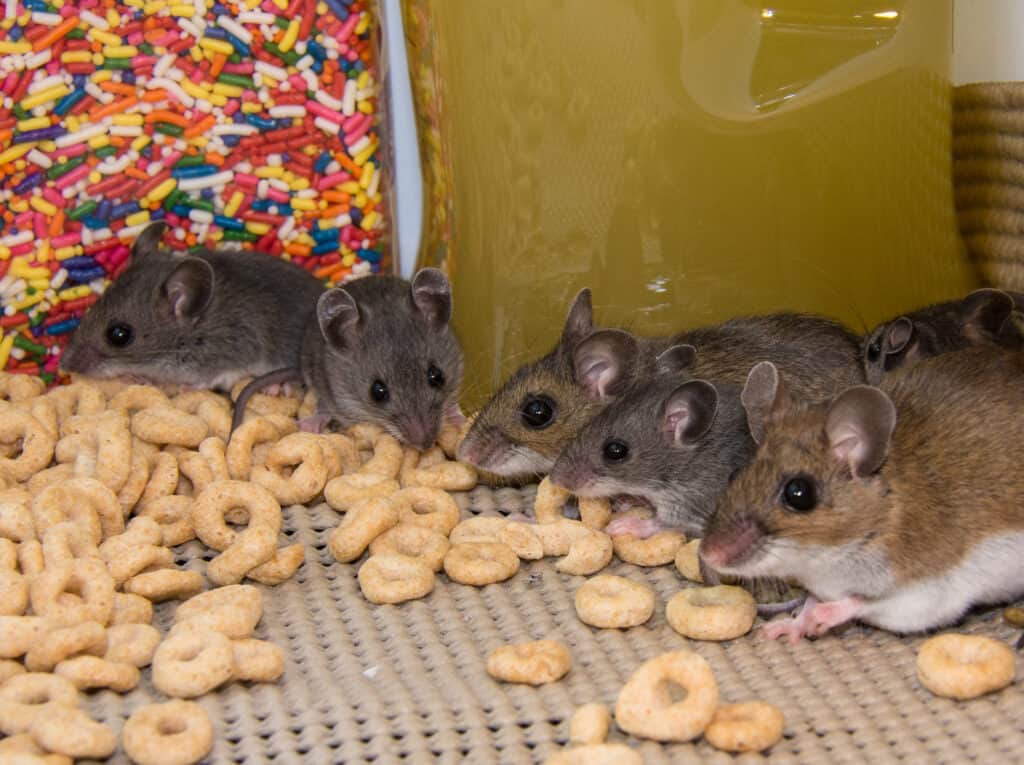Has a mouse bitten you? Maybe you handled a friend’s pet or are worried about an infestation in your home. Knowing what to do in these situations can be challenging, especially with rabies being such a deadly disease.
Fortunately, rabies infections in mice and other small rodents are incredibly rare. There are no documented cases of them transmitting it to people. If you’ve been bitten, keep the wound clean and see a doctor to prevent infection and other disease.
In this article, we’ll discuss whether mice can develop rabies, a few other risks to consider, and what you should do if a pet or wild mouse bites you.
Mice Rarely Carry Rabies But Have Never Spread it to Humans

There are no documented cases of a human contracting rabies from a mouse.
©todaydesign/ via Getty Images
According to the Centers for Disease Control (CDC), wild mice can develop and carry rabies, though this is exceedingly rare, according to the CDC. They say it “almost never” happens!
These statistics are for wild mice. Pet mice who live indoors and don’t interact with wildlife have an even lower chance of having rabies.
Mice have also never transmitted rabies to humans, at least that we know of. Since there are no documented cases, you can feel pretty safe in not catching rabies from a mouse!
If you’re concerned or believe the mouse that bit you is infected with rabies, seek medical advice from your doctor or local health department.
What to do if You’re Bitten by a Mouse
You likely don’t need to get a rabies vaccine if a mouse bites you. However, there are some other things to worry about, such as infection and other disease.
Animal bites have very high rates of infection since the teeth create puncture wounds, which go deep into the skin and heal over quickly. This can trap bacteria beneath the skin.
Infections to look out for in a mouse bite are rat-bite fever, hantavirus, and lymphocytic choriomeningitis.
If you’re bitten by a mouse and the bite breaks skin:
- Clean the wound immediately with soap and water.
- See a doctor, even if the bite is minor. They’ll likely prescribe antibiotics and ensure you’re up to date on tetanus shots.
- Watch for signs of infection, such as increased pain, redness, swelling, pus, fever, vomiting, or a bad odor coming from the wound.
Tetanus isn’t necessarily caught from the bite itself, but the wound can become infected with the Clostridium tetani bacteria, which is what causes the disease. Tetanus causes muscle spasms and stiffness, especially in the jaw.
Severe allergic reactions to mice bites are rare but possible. If you develop hives, itchiness, difficulty breathing, facial swelling, or other symptoms of anaphylaxis, go to the hospital for immediate treatment.
Keeping Mice Out of Your Home

Preventative measures, such as securing your food in sealed containers, are the best ways to keep mice out of your home.
©Landshark1/Shutterstock.com
Mice in your home can bring quite a few risks to you and your family. These include mouse bites, parasites, and diseases. If a wild mouse in your home has bitten you, consider humane removal options such as live traps.
To keep the mice out permanently, seal off any openings in your home–mice can fit into very tight spaces. According to the Humane Society, the most common ways mice get into our homes are through damaged foundations and siding, and utility pipe and wire entries.
They recommend sealing off entry points with quick-dry cement, expanding foam insulation, or wire mesh. Mice can chew through wire and plastic, making it ineffective for keeping them out.
You’ll also want to remove the mice’s motivation for entering your home in the first place. Keep your home clean and place food in airtight containers.
Handling Pet Mice
If your pet mouse has bitten you, you might want to learn some more handling tips to prevent future bites!
- Support their entire body with your hands. Do not pick up a mouse by their tail, as this can be very painful for them!
- Stay quiet and calm. As prey animals, mice are easily startled by loud noises and sudden movements.
- Let them come to you. When possible, allow your mouse to interact on their terms. Forcing interaction can lead to bites. Of course, sometimes you’ll need to handle your mouse for medical reasons, and this is okay!
- Respect their boundaries. It can be easy to force things on small animals since they can’t stop us. But this is a good way to get bitten! The more respect you show to your mouse by handling them on their terms, the better relationship you’ll develop with them–and the less likely they’ll be to bite.
- Wear gloves. Gloves can protect your hands as you handle your pet mouse, especially if you’re doing something they don’t like, such as getting them out to go to the vet.
The photo featured at the top of this post is © Sergey Bezgodov/Shutterstock.com
Thank you for reading! Have some feedback for us? Contact the AZ Animals editorial team.






